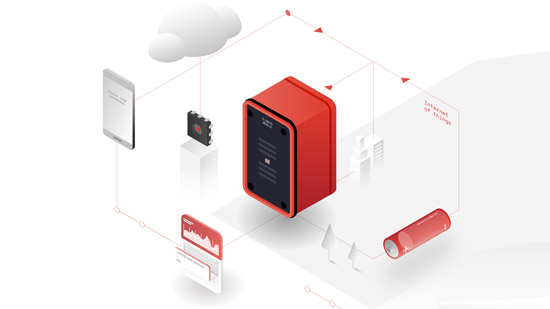Hardwario Live IoT Sensors Data in Maps
Mapotic and Hardwario cooperate to display sensor IoT data in an attractive manner
SMART & SENSOR SOLUTIONS
Mapotic and Hardwario cooperate to display sensor IoT data in an attractive manner
Hardwario innovates many industries with smart IoT sensor devices. One of them is smart cities, which thanks to intelligent technologies, can save energy and increase people’s standard of living. In cooperation with Mapotic, a new service was created, where sensor data can be effectively used on the map.
The concept of smart cities uses digital information and communication technologies to improve the quality of life in cities. It focuses on the efficient use of existing resources, the search for new resources, the reduction of energy consumption, the elimination of environmental burdens, the optimization of transport, and data sharing for public purposes.
ABOUT THE CLIENT
Hardwario is a Czech IoT startup bringing innovations to various sectors using new generation low-energy IoT devices. It focuses primarily on low power devices and networks, that bring IoT to a number of new areas where it couldn’t be applied before – from Industry 4.0 to smart cities.
Benefits of the joint Hardwario and Mapotic solution
- Automated data transfer from sensors to map
- Possibility to add additional information related to the location
- Statistics and clear display of real-time values from individual locations
- Use in smart cities, logistics, industry 4.0 etc.

“Mapotic is an ideal platform for displaying data from all of our devices that have a relationship to the location.”
Alan Fabík, Hardwario founder
Objective of the project: Creating a connection of cloud IoT services, including the ability to display sensor data on a map in real time
For the smart cities project, it was necessary to provide a clear visualization of the sensor outputs on a map. It was also necessary to create extensions that would allow the connection of sensors from individual locations and clearly visualize sensor data, including detailed graphs with value history.
Another important goal of the project was creating the possibility to perform various analyses and predictions based on the data obtained. These predetermine the solution for use in public and private services, from public space maintenance to monitoring. For example, in transport or industry.

Implementation: Easy and attractive visualization of geographically relevant outputs
Hardwario innovates the IoT segment with advanced devices that last up to years of operation without battery replacement thanks to Low Power technology. An example is the Chester device, suitable for monitoring and sending values from various locations, which we used in the pilot phase of the joint project.
Telemetry and display of data from sensors and devices in real time on maps
The result: A tool not only for smart cities, but also for better monitoring and decision making
By connecting the Hardwario and Mapotic platforms, a service has been created that displays sensor data in a new context. It is suitable not only for smart cities, but can also be used in industry, agriculture, and social services.
Key benefits of sensor data visualization solutions:
- Easy and clear visualization of sensor data on a map
- Transfer of all readings from sensors to the map in real time
- Overview of individual locations
- Graphs enabling closer analysis of values at individual locations
- Easy integration of individual locations within web presentations and applications
- Simple display of current measurements on public digital bulletin boards such as “city lights” or “digital signage”